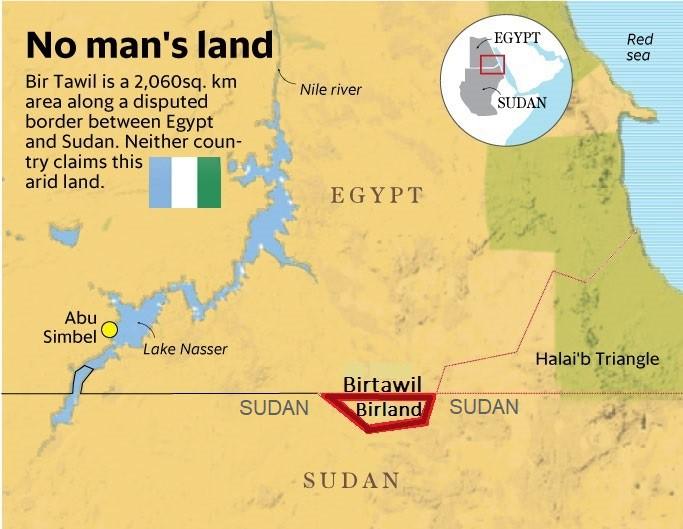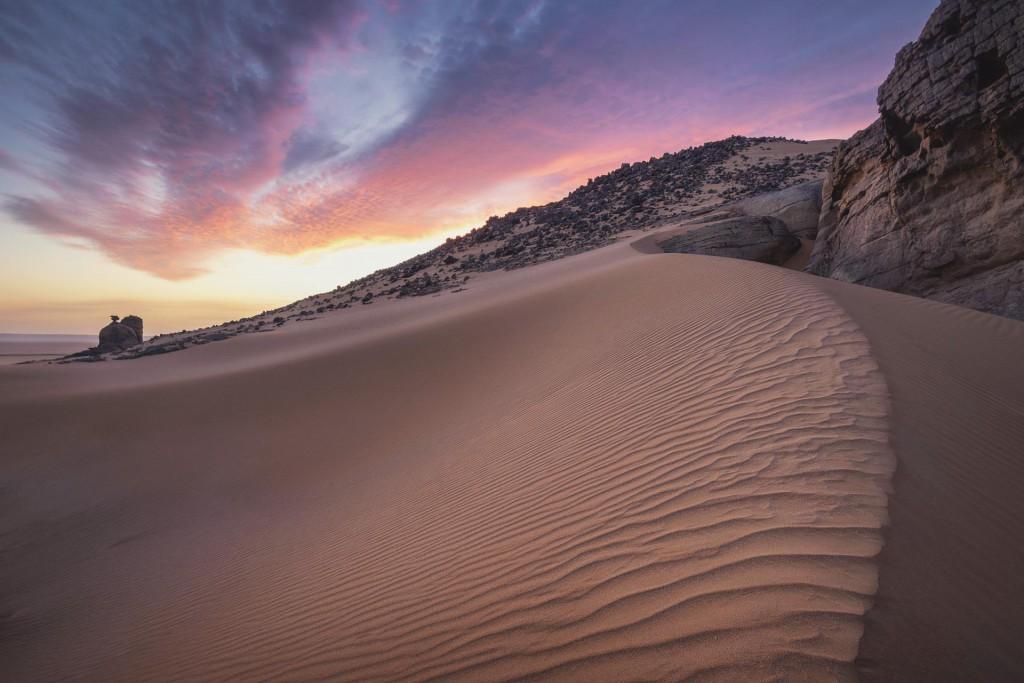Territorial disputes can arise for many reasons. But for every historical grievance, independence movement or tussle for resources, there’s one prevailing sentiment: It’s our land and we want it.
All except one, that is.
Because for the past 120 years, a dusty, rock strewn patch of desert in northeast Africa has held the dubious distinction of being completely unclaimed by any nation on earth. Bir Tawil, wedged unlovingly between Egypt to the north and Sudan to the south, is wanted by neither country. It has no inhabitants and no laws. It is, quite literally, no-man’s land.
How this unique situation arose forces us to confront the legacy of colonialism, the absurdity of lines drawn on maps and why The Lord of the Rings trilogy is not a sound basis for nationhood.

Colonialism strikes again
Back in 1899, the United Kingdom and Egypt ruled Sudan (and what later became South Sudan) through a dual colonial agreement known as the Anglo Egyptian Condominium. A political boundary, drawn up that year, decreed that Sudan would be classed as any land “south of the 22nd parallel of latitude” – which included Bir Tawil.
Three years later, however, the British decided to have another go; this time attempting to demarcate the boundary between Egypt and Sudan based on the prevalence of local tribes in the region. This second “https://www.battleface.com/blog/wp-content/uploads/2023/08/Partners-showcase-2.jpgistrative boundary” apportioned Bir Tawil to Egypt, but also snatched away the Hala’ib Triangle to the northeast of the territory and put it under the control of the British governor of Sudan.
However, the Hala’ib Triangle, wasn’t just a patch of desert. It was on the Red Sea, providing fishing access, and also had mining potential. Egypt’s position was clear: It’s our land and we want it.
Ever since, Egypt has recognised the 1899 political boundary and Sudan the 1902 https://www.battleface.com/blog/wp-content/uploads/2023/08/Partners-showcase-2.jpgistrative boundary, with neither willing to accept Bir Tawil as it would undermine their respective claims to Hala’ib.

Free land?
So, free land, right? You might as well book a plane ticket, hop on a camel, and plant your flag for the whole world to recognise you as the sovereign ruler of Bir Tawil? Well, you wouldn’t be the first.
Various eccentrics, publicity seekers, and wannabe heads of microstates have attempted that very thing. Even going to the expense of having flags designed, currencies minted, and pompous letters drafted to the United Nations (which, I imagine, ended up in a UN wastepaper basket shortly after being read).
But just because the claims are spurious doesn’t mean they haven’t generated some minor diplomatic spats along the way.
The Kingdom of North Sudan
In 2014, US citizen Jeremiah Heaton completed the perilous 14-hour journey from Egypt to Bir Tawil, unfurled a flag he’d had designed especially for the occasion and planted it firmly in the sandy ground beneath his feet, laying claim to Bir Tawil as a “sovereign monarchy” called the Kingdom of North Sudan.
Heaton later claimed his inspiration for establishing the state was a wish of his six-year-old daughter to be a princess. A request that this devoted dad claimed he had delivered (obviously, also landing himself a sweet gig as a king in the process).
The Kingdom of Dixit
In 2017, Indian IT entrepreneur Syash Dixit attempted the same journey, again planting his flag in Bir Tawil but this time appointing himself as prime minister and his father as president, before marking the historic occasion by planting a handful of sunflower seeds.
But just like any conventional territorial dispute, our aforementioned ‘king’ was not well pleased. Heaton and Dixit aired their disagreements on Twitter (thankfully, neither having had the foresight to muster armies) until a conversation between the two convinced them to join forces in their territorial claims against an emerging threat to the realm.
Enter Dmitry Zhikharev. Oh and JRR Tolkien.

The Kingdom of Middle Earth
Russian radio professional Zhkharev, enflamed by the sudden media attention this geopolitical conflict was generating, stepped into the limelight, claiming that he had actually settled Bir Tawil in December of 2014 (shortly after Heaton had arrived) but accusing his American and Indian rivals of faking their presence on the land.
Zhkharev announced he had named the land Kingdom Mediae Terrae (or Middle Earth) after the fantasy setting of Tolkien’s Lord of the Rings and that, naturally, he was its one true king.
An exclusive club
The problem is that ‘leaders of sovereign states’ is an exclusive old club and they’re not keen on accepting new members. So, while a dream of creating a benevolent dictatorship may satisfy your ego, it almost definitely won’t satisfy those fusty old squares at the United Nations.
Like the Principality of Sealand in the North Sea, or any Silicon Valley techno-utopian with dreams of establishing a crypto-fuelled libertarian floating state (with blackjack and hookers!), forging an independent nation isn’t the easiest thing to do.
And if you’re going to rely on the old chestnut of ‘It’s our land and we want it’, you should be aware that it usually only works if you’ve got an army on standby.









